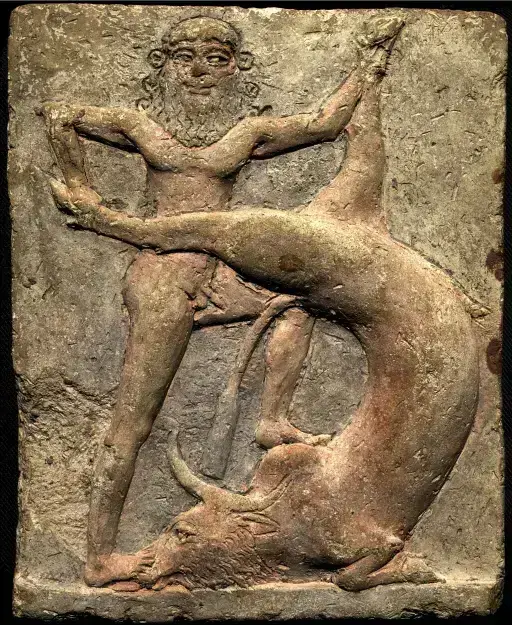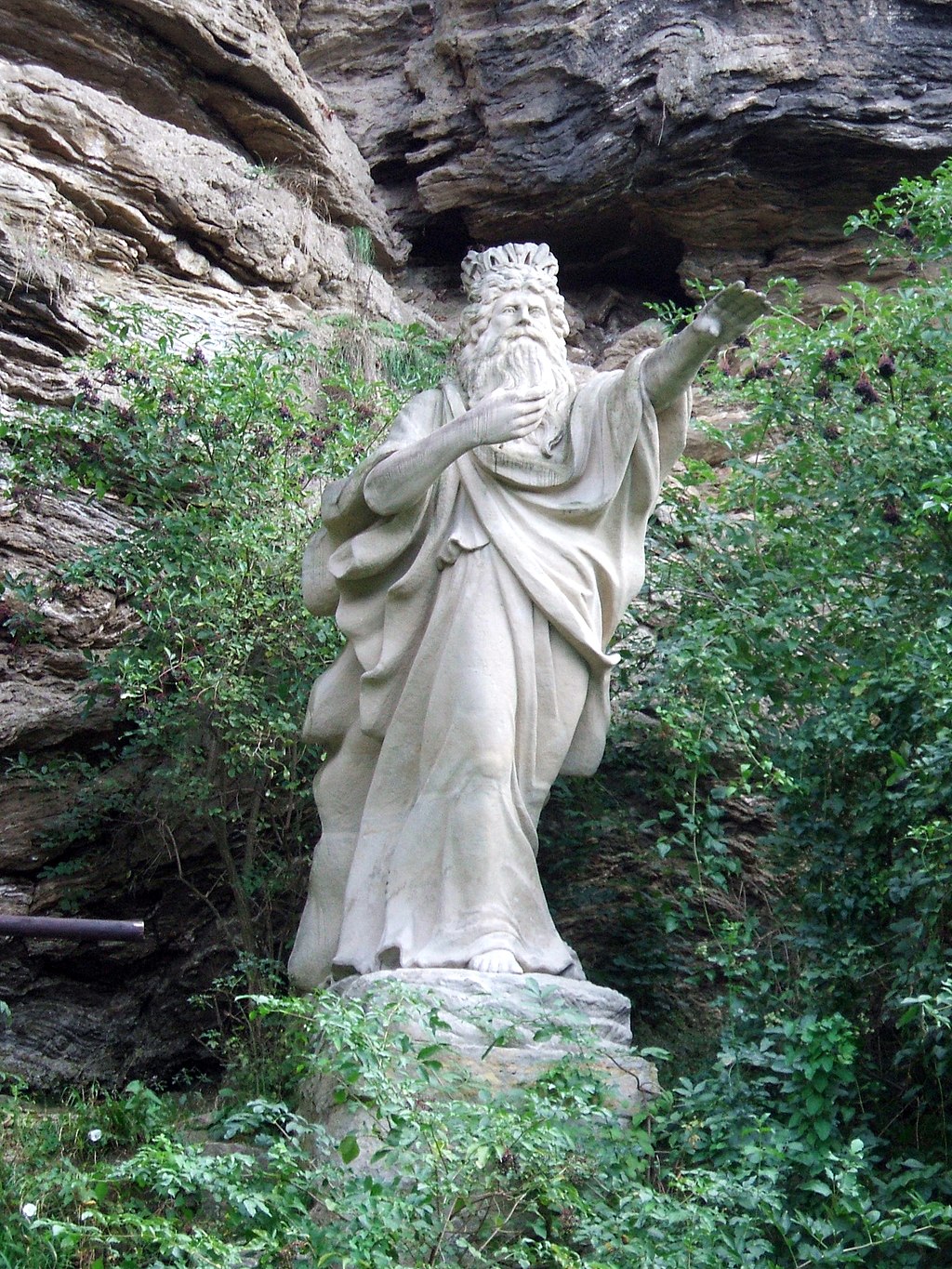Bull of Heaven

In ancient Mesopotamian mythology, the Bull of Heaven is a legendary creature that battles the hero Gilgamesh. This mythological tale exists in two distinct versions: an earlier Sumerian poem and a later narrative in the Standard Babylonian (a literary dialect of Akkadian) Epic of Gilgamesh. In the Sumerian account, the goddess Inanna dispatches the Bull to attack Gilgamesh for reasons that remain ambiguous.
The more comprehensive Akkadian version appears in Tablet VI of the Epic of Gilgamesh. In this telling, Gilgamesh rejects the romantic advances of the goddess Ishtar (the East Semitic counterpart to Inanna), prompting her furious demand that her father Anu provide her with the Bull of Heaven to unleash upon Gilgamesh in Uruk. After Anu grants her request, Ishtar sends the Bull to assault Gilgamesh and his companion Enkidu, who together overcome and slay the beast.
Following their victory, Enkidu taunts Ishtar by hurling the Bull's right thigh at her. This act of defiance leads the gods to condemn Enkidu to death—a pivotal event that intensifies Gilgamesh's fear of his own mortality and drives the remaining narrative of the epic. The Bull was associated with the constellation Taurus, suggesting the myth may have held astronomical significance for ancient Mesopotamians.
Scholars have noted parallels between this story and other ancient Near Eastern narratives, including legends from Ugarit, the biblical tale of Joseph in Genesis, and elements of the ancient Greek epics, the Iliad and the Odyssey.


